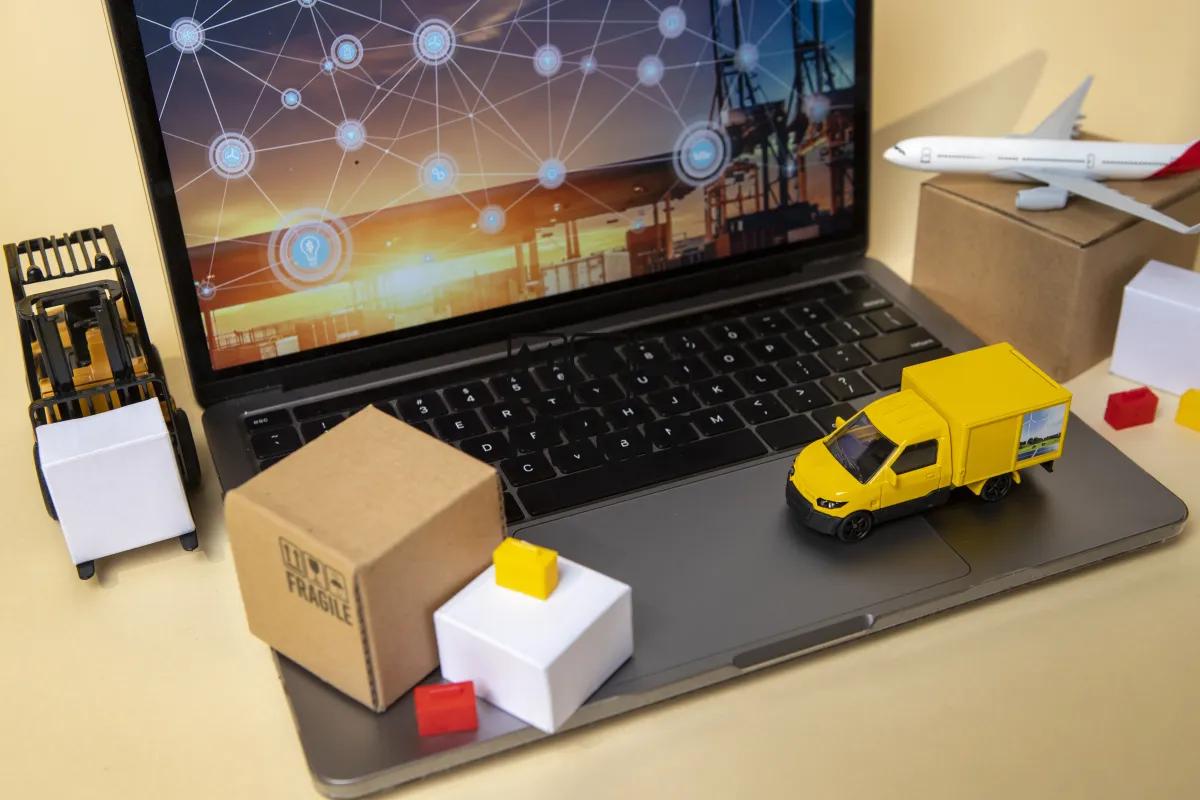Revolutionising Supply Chains
In today's rapidly growing technological landscape, one term stands out among the rest – blockchain. Its application in the supply chain reshapes how we monitor, trace, and trust the products we encounter daily. Consider a digital ledger that is decentralised, secure, and transparent; that’s the core of blockchain. Unlike traditional databases, blockchain is distributed across a network of computers, forming a safe and unalterable chain of blocks, each linked to the previous one.
In recent years, supply chains have evolved into huge ecosystems, demanding trust, provenance, and data privacy. Since blockchain technology allows for developing a distributed environment, it is ideal for supply chain management (SCM) applications. To better understand the real-world effects of incorporating blockchain technology into the supply chain, let’s consider a shipment of fresh produce travelling from a farm to a grocery shop. With a blockchain-enabled supply chain, each journey stage is recorded and accessible to all stakeholders: the farmer, the logistics company, the distributor, and even the end consumer.
Blockchain ensures transparency by making every transaction and movement of products visible. This transparency builds trust among participants and enables consumers to make informed choices about the products they purchase. For instance, you can scan a QR code on a product and instantly access a blockchain record showing its entire journey, including when it was harvested, processed, and transported. In a product recall or quality issue, blockchain facilitates rapid traceability. Instead of days or weeks spent identifying the source of the problem, stakeholders can pinpoint the origin of an issue within minutes. This reduces the impact of recalls on businesses and enhances consumer safety.
Blockchain isn’t just about improving business operations; it’s about positively impacting people and communities. Consider the impact on marginalised communities involved in the supply chain, where fair practices and ethical sourcing are critical. Blockchain ensures that the journey of a product aligns with ethical and fair-trade practices. For example, in the coffee industry, blockchain can track the origin of beans, confirming that they were sourced from farmers who paid fair wages. This transparency empowers consumers to support businesses prioritising ethical practices, creating a ripple effect that benefits communities worldwide.
As a consumer, imagine having the power to choose products that align with your values. Blockchain empowers consumers by providing the information needed to make conscious choices. Whether choosing products with minimal environmental impact or supporting businesses committed to social responsibility, blockchain brings transparency to the forefront.
The impact of blockchain in the supply chain isn’t just confined to individual businesses; it aligns with global initiatives such as the Sustainable Development Goals (SDGs). Blockchain promotes responsible consumption by allowing consumers to make informed choices based on the origins and practices associated with a product. This aligns with SDG 12, which aims to ensure sustainable consumption and production patterns. By enhancing transparency and traceability, blockchain contributes to reducing inequalities in the supply chain. Fair practices and ethical sourcing have become the norm, benefiting producers and consumers and aligning with SDG 10.
While the benefits of blockchain in the supply chain are promising, challenges exist. Concerns about the complexity of implementation, interoperability between different blockchain systems, and data privacy need to be addressed. Businesses are working on user-friendly interfaces and simplified integration processes to overcome complexity. User-friendly applications and platforms are emerging, making it easier for large and small businesses to adopt blockchain solutions in their supply chains. However, data privacy is a paramount concern. Blockchain solutions incorporate privacy features, ensuring sensitive information is accessible only to authorised parties. Innovations in privacy-focused blockchain technologies are paving the way for widespread adoption.
Integrating blockchain in a supply chain is not just a technological advancement; it’s a paradigm shift in understanding and engaging with the products we consume. From ensuring ethical practices to empowering consumers and contributing to global sustainability goals, blockchain is revolutionising supply chains. As we embrace this technology, we move toward a future where transparency, trust, and responsibility define the global supply chain landscape. It’s not just a buzzword: it's a transformative force with the potential to create positive change for individuals, communities, and the planet.
Dr Aaliya Sarfaraz
School of Engineering and Technology
Email: @email




